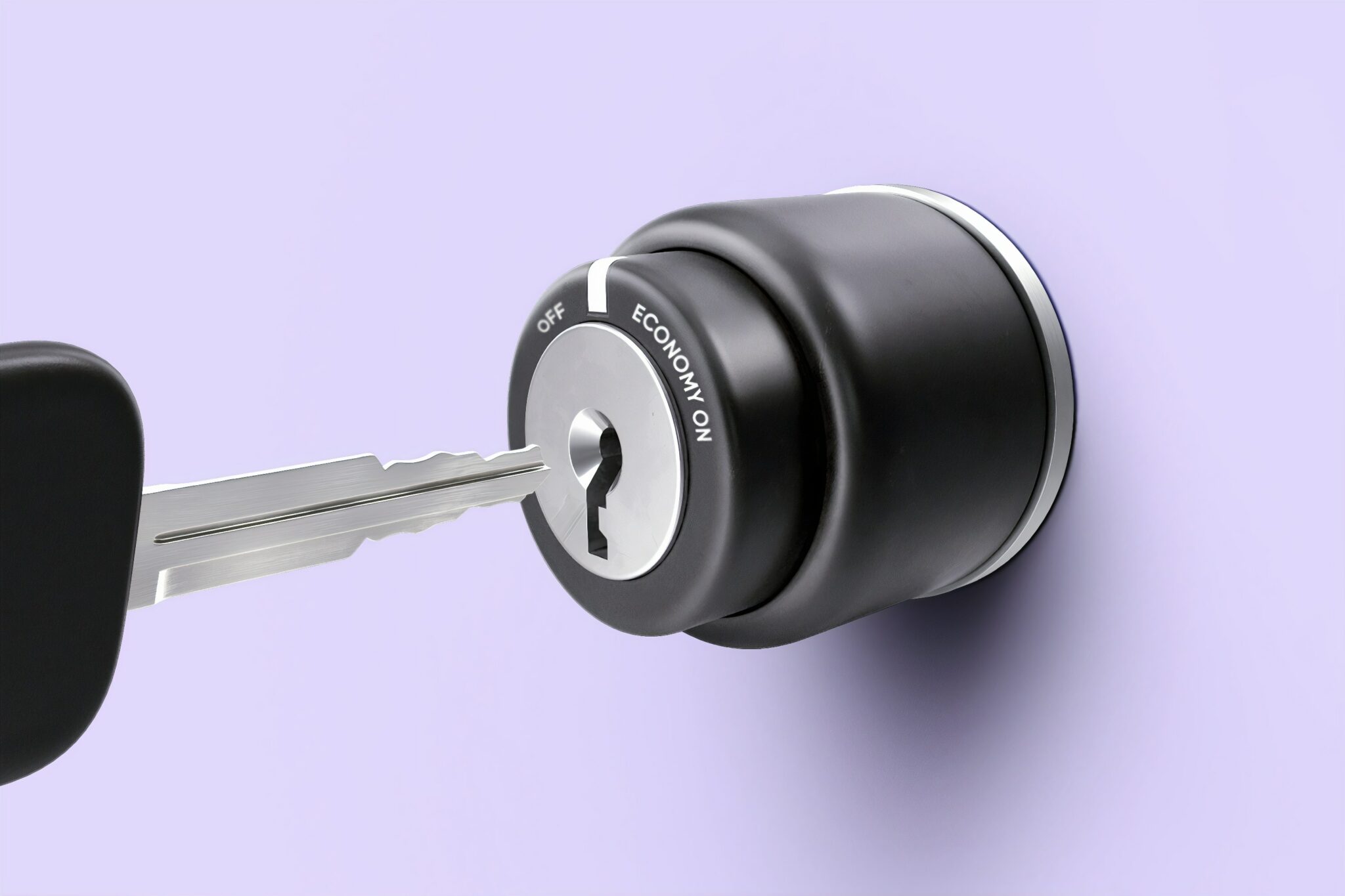FEATURED ARTICLE
How To Recession Proof Your Finances

Rebekah May
August 13, 2020 •4 min read
TABLE OF CONTENTS
What Is A Recession?
What Does A Recession Mean For Me?
So, how Can I Recession Proof My Finances?
Summary
Coronavirus has brought economic activity to a near standstill across the globe, with many describing the crisis as the largest economic shock the world has experienced in decades. This shock has affected some of the world's largest economies so much, that multiple recessions across G7 countries are now looking very likely. Only yesterday, Rishi Sunak (Chancellor of the Exchequer) announced that the UK was officially in recession.
In this article, we're going to explain what a recession is. We'll then share seven tips that'll help you recession proof your finances.
What Is A Recession?
A recession is the term used when a nation’s economy experiences two consecutive quarters of “negative growth”. Negative growth can be down to a fall in gross domestic product (GDP), an increase in unemployment, as well as poor retail sales.
The UK economy, which has been in decline since the lockdown began in March 2020, is now facing a recession for the first time in 11 years. It sees a 20.4% decline in the second quarter of the year, which is the largest reported by any major economy so far.
Behind the UK, Canada and the US are also experiencing worrying economic downturns.

What Does A Recession Mean For Me?
A recession has huge impacts for the economy, which can then lead to huge problems for individuals and businesses.
Unemployment is often one of the areas most affected. Businesses may see increased costs, but a drop in revenue, and to compensate for this many are forced to make their staff redundant.
If you’re worried about going into a recession, and the impact this may have on your financial situation then continue reading. We’ve listed seven things you can do to make sure your finances are in the best place possible.
So, how Can I Recession Proof My Finances?
1. Build your emergency fund
If there’s one thing we’ve learnt in 2020, it’s the importance of having an emergency fund.
Emergency fund, or rainy day fund, as some people like to call it, is an amount of money that has been set aside specifically for emergencies.
This money can be used as a safety net in special circumstances, like a period of unemployment. Financial advisors suggest you work towards building 3-6 months worth of outgoings. But don’t let this put you off. It’s better to start small, than not start at all.
We’ve written about emergency funds in more detail, here.
2. Cut Unnecessary Expenses
Do a deep dive into your spending and see if there are any areas that you could cut back on.
Use the Analytics tab in Emma, and view previous months' spending by category. If one category is consistently coming up with the most amount spent, test if there are any ways you can reduce this spending.
This exercise will help you identify where your money is going each month, and help you see where savings could be made.
3. Switch bank accounts
It’s not unusual for many people to have the same bank account for multiple years. But, switching bank accounts comes with lots of benefits. For one, you could end up switching to a bank account with lower fees and monthly charges. Or even an account with higher interest rates.
You could also switch to a bank account that offers cashback on anything you buy. This should never be used as a reason to spend more money, but it can work out nicely if you’re already planning on spending money on specific items.
Read more about how to switch bank accounts.
4. Review your bills
As with switching bank accounts, now is also a good time to review how much you’re spending on your bills.
Use the “save money” tab on Emma to get a quote for cheaper energy bills. You may be surprised just how much money you could be saving every year, from simply switching to a new provider.
If you’re in the UK and would like more info about how to switch energy providers in Emma you can read this recent post.
https://emma-app.com/blog/2020/08/11/switch-energy-providers-with-emma/
5. Start a side hustle
One of the main causes for concern when going into a recession is job security.
Starting a side hustle is a great way to earn an extra stream of income. Think about something you’re passionate about doing, and figure out if there is any way you can monetise this.
It’s worth remembering that it doesn’t need to be a brand new idea, your side hustle could be tutoring, dog walking, blogging, or even selling old clothes.
The money you make from this can be added straight into your emergency fund, helping you get one step closer to recession proofing your finances.
Read 7 ways to make money from home, or 16 best side hustle ideas for 2021.
6. Have a debt checkup
It’s now more important than ever to keep track of what money you owe and to who. Keeping on top of debt repayments should be a priority.
Spend some time figuring out which loans you should be paying off first, and set up a plan of action.
If you’re struggling to keep up, make sure you speak to your lender as soon as possible. Some are offering repayment holidays. But, remember that this should only be used as a last resort. (You’ll still have to pay the money back, but now it’ll be with even more interest)
7. Check your savings are protected
And our last tip that can help you recession proof your finances is to check that your savings are protected.
Any money that is kept in a bank or investment firm is protected by the FSCS up to £85,000. If you have more than this amount in your account, you will not be protected if the bank goes bust. You can check if you’re covered here.
Summary
We really hope that no one is hugely impacted by the news of a recession, but we hope this list has helped you recession proof your finances.
If you liked this article, let us know on Instagram, Twitter, Facebook, or on the Emma Community.
Emma is a money management app that connects all your bank accounts to track your monthly spending and subscriptions. Emma will help you visualise and take control of your finances. Make sure you aren’t overspending, and show you practical steps to start budgeting effectively.
You may also like
Check out these related blog posts for more tips
© 2025 Emma Technologies Ltd. All Rights Reserved.
Emma is registered and incorporated in England and Wales.
Emma Technologies Ltd is an appointed representative of RiskSave Technologies Ltd, which is authorised and regulated by the Financial Conduct Authority (FRN 775330).
Payment services (Non MIFID or Deposit related products) for Emma Technologies Ltd are provided by The Currency Cloud Limited. Registered in England No. 06323311. Registered Office: Stewardship Building 1st Floor, 12 Steward Street London E1 6FQ. The Currency Cloud Limited is authorised by the Financial Conduct Authority under the Electronic Money Regulations 2011 for the issuing of electronic money (FRN: 900199). For more detail on how your money is protected please see here. You can also find Currency Cloud's Terms of Use here.
Emma Technologies is an Introducer Appointed Representative of Quint Group Limited and not a lender. Quint Group Limited is authorised and regulated by the Financial Conduct Authority (Firm Reference Number 669450). Monevo Limited is an Appointed Representative of TransUnion International UK Limited. TransUnion is authorised and regulated by the Financial Conduct Authority (Firm Reference Number 737740). Emma Technologies introduces customers first to Quint Group Limited, as a licensed credit broker, who then refers on to Monevo Limited.
Emma is registered with the Financial Conduct Authority under the Payment Services Regulations 2017 for the provision of payment services.
Financial Conduct Authority Reg Nr: 794952.
Company Registration Number: 10578464.
Data Protection Registration Number: ZA241546.
All testimonials, reviews, opinions or case studies presented on our website may not be indicative of all customers. Results may vary and customers agree to proceed at their own risk.
Resources: Cancel subscriptions, Cashback offers, Who charged me, Rent Reporting, Budgeting, Investment universe, Emma vs Moneyhub.
Featured cashback offers: Samsung, SimplyCook, NordVPN, Audible, M&S Homeware.









